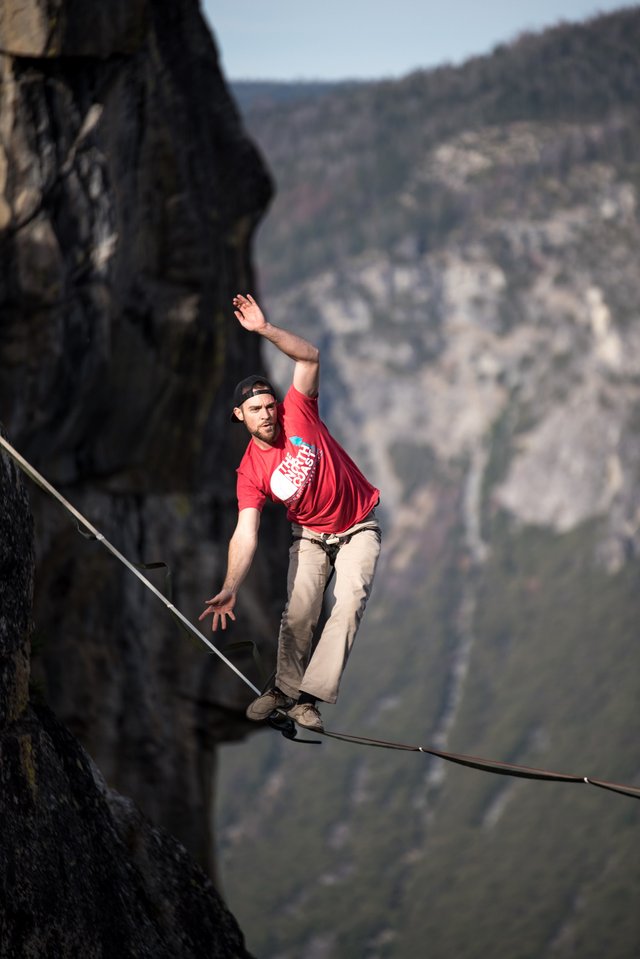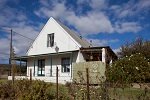Balancing Act or Slippery Slope?

I've had a hiatus from blogging. Some of it because I've moved to a new host - a story for another time. Most of it, though, because I've been through a bit of a low patch. I can't say that I'm out of the funk. I'm not. Things still look and feel bleak. I am, however, getting angry. I am confused.
When I last wrote about the Covid-19 pandemic, I shared facts and little opinion. I said I'd save my thoughts for another time. That time has come. Be warned: it's a long read.
Before I do, a factual update:
The stats

Covid-19 figures as at 30 April 2020: The world and South Africa
In the centre of the South African epidemic is now Cape Town. In the 38 days since the first case was reported, an average of 148 new cases has been reported per day. However, in the last three days, the number of confirmed new cases has averaged more than 300.
The South African curve is still rising. Potentially exponentially. Unlike originally hoped. The peak is still expected in August or September. So the numbers will go up, as will the need for hospital beds.
In our minicipal district, Langeberg, in the 14 days since I last wrote about Covid-19, we've gone from 1 active case to 4.
Effective today, 1 May 2020, South Africa moves out of a total lockdown and into stage 4. A summary of what we may and may not do, is here.
What the President said
Last Thursday, and anticipation of the end of the extended lockdown, President Cyril Ramaphosa addressed the nation. For the majority of people in my circle, there were three things that were top of mind: excercise, booze and smokes. Not necessarily in that order.
The president was unequivocal.
The people
- will be able to buy smokes. Again.
- won't be able to buy beer.
- will be able to exercise but umm...well...my people, will get back to you on that.
Let's talk about alcohol
The logic behind the ban on the sale of alcohol can be deduced and, to a degree, understood. Yes, overindulgence does impair one's judgement and one thing can lead to another. Yes, South Africa does have a problem with alcohol abuse and binge drinking. It's common knowledge that alcohol contributes to domestic and gender based violence as well as motor vehicle accidents. South Africa has more than her fair share of these.Following the lockdown, there was a more than 60% reduction in trauma cases - stabbings, gunshot wounds and motor vehicle accidents. Reports attribute this to the ban on the sale of alcohol. Nobody mentions that traffic levels over the Easter weekend were also much reduced because people had to stay at home. The corollary, and in the same report: there was no "major shift" in the number of reported incidents of domestic violence.
The devil and the details
On Wednesday, on the eve of the eve of the lifting of the ultimate lockdown, the relevant ministers briefed the nation. We all waited with baited breath. Smokers, enjoying the last of the eked out stash of ciggies, waiting to learn what "exercising" would mean.
School, universities and work
Certain people are back to work; certain mines, factories and enterprises are operating again; restaurants may deliver food between certain hours. Schools may open on 1 June. The colleges and universities will not return to campus-based classes this year. Except for final year clinical medical students. They're needed on the "front line".
The rest of us, especially the "elderly" must stay at home.
An exercise gap
Individuals may walk, jog or cycle between 6 and 9 am. We're going into winter and South Africa has one time zone. At 6am, it's pitch dark on this (west) side of the country. In the towns and cities, this is exactly the time when those who may, are going to work.
Why just this two-hour window. is a question that is vexing everyone.
- It's easier to police. Especially in the townships and informal settlements.
- Because we won't be tempted to have a catch up on the corner like we would between 4 and 6 pm.
I am concerned about -
- solitary women cycling, walking or running in the dark?
- homes, desserted by
exercise fanaticspeople exercising their right to exercise, that are vulnerable to the criminal element that thrives on routine?
De ja vu
It gets better. I said that the rest of us, especially the elderly, must stay at home. We may only leave home for essentials, excercise and for medical appointments. If stopped by the police (or army), we may be asked to prove why we've ventured out.Workers are on a tight leash: they may only leave home at 5am and must be back at home not later than 8pm. Or else. You must have a permit. Or else. Oh, and a permit to move between provinces. Or else. If you must. Or else.
I hear bells ringing. South Africa has a national curfew. Again.
The dompas is back. Again.
That's not all.
The about turn
On Wednesday, as the minister was rambling on, I wasn't paying attention because I was faffing in the kitchen. The Husband was watching the ticker at the bottom of the TV screen and suddenly said, "No cigarettes!"
What?
I checked Twitter. Sure enough.
I sat down to watch. What the Minister of Co-operative Governance, went on to say was, at best, laughable. Nkosazana Dlamini-Zuma is a medical doctor, former Minister of Health and an rabid anti-smoking campainer: she advised that more than 2,000 submissions opposed the sale of cigarettes, tobacco and vaping products. The health rationale is a given. Partly. I'll come back to this. Then she said -
the way tobacco is shared does not allow for social distancing...When people zol, they put saliva on the paper, and then they share that zolA zol is a hand-rolled cigarette which often includes marijhana. It's not having a joint that's the problem; we may grow our own ganja. We just can't sell it (which has nothing to do with Covid-19 or the lockdown...). In the time of Covid-19, according to the South African Command Council, it's sharing a cigarette that spreads the disease.
I'll come back to this.
Who is old and at risk?
Up to this point I have, by and large, been enormously proud of the way the South African government has managed the Covid-19 pandemic. I have endorsed the lockdown, in principle. I said so. I spoke about the significant proportion of the population at risk because of HIV and TB. What I didn't delve into was overall life expectancy and the incidence of deaths from non-communicable diseases - just over 26% of all deaths.
The table below suggests that if one is over 60, one is old. Women live, on average, three years longer than their male counterparts.

Source
I am approaching 60; The Husband is over 70. It's quite a thing to be told one is old because the demographics say so. Especially if one is healthy. In this village, we are surrounded by sassy over 60's who could put many 40 and 50 year-olds to shame. We won't talk about the 70- and 80-year olds who have the stamina to boogy the night away and bang a ball around a tennis court two to three times a week.
Old people must stay at home
Does this include our Minister of Health who, himself, along with many in cabinet, are well over 60? Oh, and speaking of Mkize, he's asthmatic....
Although these data are from 2016, they do paint a useful picture of the population's characteristics. Other than being old, which one can't help, it's the chronic conditions make people particularly vulnerable to Covid-19. At a briefing on Tuesday, the Minister of Health said that most of the deaths in South Africa were among people with comorbidities. He specifically mentioned hypertension and diabetes but added a third: obesity. This adds another risk factor when one considers the proportion of South Africans who are overweight:

Source
This is a significant proportion of South Africans; obesity is a burgeoning problem. What these figures do not show, is how many of those who are overweight are also diabetic. It's common knowledge, though, that the two often go hand in hand.
Back to tobacco
The logic behind the ban on the sale of tobacco and vaping products is perplexing. To say the least. I am not a smoker; never have been. However, I grew up with smokers and I'm surrounded by people who do. I, and they, are all aware of the health risks associated with the habit. Like many addicts, they don't care. Even if it does put them at higher risk of disease. Including Covid-19. At least one smoker in my friendship circle has said so.
The experts do say that there is an almost immediate benefit to the lungs when someone stops smoking. However, I also know, from having lived with people who have quit, that in the six to twelve months after, they seem particularly vulnerable to colds and flu.
With all that in mind, let's have another look at the actual proportion of the nearly 58 million South Africans who smoke.

Source
Those figures mean that there are fewer people in the country who smoke than there are people who are overweight. Yet, as some wag on social media suggested, there's been no ban on sugary drinks, chocolates, sweets, confectionary....
The ban on the sale of cigarette and tobacco products defies logic.
It's a one-size-fits-all approach that seems to pander to the members of the local temperance society. Or does it?
Prohibition
South Africa's history is full of prohibitions. That's what Apartheid was about. Prohibiting certain groups of people from doing, accessing, and generally being human beings. It criminalised normal human behaviour. Including the home-based manufacture of alcohol. Virtually every South African community has stories of making one form of moonshine or another, from mampoer to umqombothi. Not all good. Especially when it came to the heavy hand of the law.
Prohibiting the sale of alcohol and cigarettes has, on one hand, robbed the government of desperately needed cash. On the other, it's contributed to an existing black market - with all the nasty things that go with it. Violence and extortion. As with all black market commodities, it's a case of who one knows and price. Said a friend who lives in a suburb of Cape Town:
I can give you the names .... and who they allow the selling of alcohol through or even which shop and which items to ask for in order to get your stock. Everyone and everything has a price.It's the old story of supply and demand. Those who don't have access to those channels resorted to mobbing and looting. The existing gang leaders probably don't need lessons from Al Capone and Lucky Luciano.
Oh, and since then, it would seem that she who made those pronouncements, has an association with that ilk.
Cigarettes: a symbol of oppression?
As more and more people, far more learned or erudite than I, question the rationality of this decision, questions are also being asked about the deeper significance of aspects of the restrictions associated with the lockdown.
When the lockdown was just being mooted and the fear and paranoia of this invisible enemy began to seep into our conversations, there were laughing suggestions that the gates of the village should be closed. The fear of the unknown, and unseen is how it begins. We get caught up in the headlines and soundbites and don't delve into the mire beneath. We should. It's as scary as it is enlightening.
Yes, the numbers are scary. Yes, this disease is ugly, horrible and has no cure. No, I don't want to get it. No, I don't want anyone I love to get it. Yes, they might. That frightens me.
It's these emotions that are fed by the numbers that are spewed out and not interrogated. We need to remember that the mortality rate is between 1 and 5% depending on the population. That means that many, many more people survive the virus than succumb.
Tools for Control
It's this perspective that neither governments nor the news media foreground. Instead, they frighten us so that we want to set ourselves apart from people who might be contaminated. That is how stigma begins.
Fear is one of the tools that governments use to control their subjects.
Another is the big data that they collect: the information we readily (and not so readily) give away in our internet searches, social media activities and with out mobile phones. The ubiquitous mobile phone has become a critical mechanism for the tracking and tracing of potential Covid-19 cases. You don't have watch CSI or Criminal Minds to catch my drift.
Yes, they need to find potential super-spreaders. They need to find, treat and heal people who are ill.
After Covid-19
When all this is over, what will they do with the data they've collected? Our data.
Edward Snowden is concerned. He says we should be, too.
Will we be able to legally buy and enjoy a glass of wine and a fag? Where and with whom we please?
Will we be able to do more than break virtual bread and have virtual birthday parties?
These are vexing questions, not just for South Africans, but for other countries, too, where civil liberties have been severely curtailed. In the interests of public health.
Bastardising another cliché, there may be short term gains, but one does have to wonder about the longer term implications once this disease, as the Spanish flu did, peters out.
Is it a fine balancing act, or a slippery slope?
Until next time, be well
Fiona
The Sandbag House
McGregor, South Africa
Post Script
online English tutoring services


writing - emails and reports, academic and white papers
formal grammar, spelling and punctuation
more information here
And then there's more:
- If this post might seem familiar, it's because I'm doing two things:
- If you’re interested in a soft entry into the world of crypto currency and monetising WordPress blog, use the fantastic Steempress plugin to post directly to the Hive blockchain. Click on the image below to sign up

- I’m still blogging on Steem and more recently share my burbling on Uptrennd and with the occasional post on Medium.
Posted from my WordPress blog with SteemPress : https://fionasfavourites.net/balancing-act-or-slippery-slope/

Thank you @fionasfavourites, for using the CO2 Compensation Coin (COCO) to reduce your CO2 footprint.
Nice to read your thoughts on the situation here for us South Africans Fiona. People must be getting poorer by the day as the money runs out and we are under house arrest. Those that can't work from home.
Thanks for stopping by. Yes, it's tough. All my work has dried up, too. It was all tourism related. The reinvention game has begun again